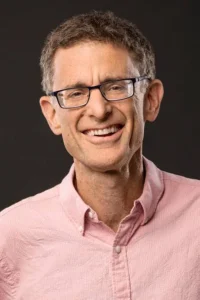The Joe Rogan Experience #1643 – Jonathan Zimmerman & Joe Rogan:

Jonathan Zimmerman
Jonathan Zimmerman is a historian of education who is a Professor of History of Education at the University of Pennsylvania Graduate School of Education. Zimmerman graduated from Columbia College in 1983, where he was the editor-in-chief of Columbia Daily Spectator. He earned an M.A. in history in 1990, and a Ph.D. in history in 1993, both from Johns Hopkins University. He taught for 20 years at New York University, where he was chair of the Department of Humanities and Social Sciences in NYU’s Steinhardt School of Culture, Education, and Human Development. Though being a social liberal, he champions unrestricted freedom of speech for all, including conservatives.
Books Mentioned in JRE #1643 - Jonathan Zimmerman & Joe Rogan:
Summary of The Joe Rogan Experience #1643 - Jonathan Zimmerman
In episode 1643 of The Joe Rogan Experience, Joe Rogan speaks with Jonathan Zimmerman, an American historian and professor of education and history at the University of Pennsylvania, about free speech and censorship. The conversation covers a range of topics, including the history of free speech in the United States, the current state of free speech on college campuses, and the role of social media in shaping public discourse.
The History of Free Speech in the United States:
Rogan begins the discussion by asking Zimmerman about the history of free speech in the United States. Zimmerman notes that the First Amendment of the Constitution protects freedom of speech, but that this right has often been challenged throughout American history. He points to examples such as the Sedition Act of 1798, which criminalized criticism of the government, and the Red Scare of the 1950s, which saw the persecution of individuals suspected of communist sympathies.
The Current State of Free Speech on College Campuses:
The conversation then turns to the current state of free speech on college campuses. Zimmerman notes that there has been a recent trend towards restricting free speech on campuses, particularly in the form of “speech codes” and “safe spaces” designed to protect students from offensive or controversial speech. He argues that while it is important to create a safe and respectful learning environment, this should not come at the expense of free speech.
The Role of Social Media in Shaping Public Discourse:
Rogan and Zimmerman then discuss the role of social media in shaping public discourse. Zimmerman notes that social media platforms such as Facebook and Twitter have become major players in the public sphere, and that they have the power to shape public opinion and influence political discourse. He argues that while these platforms have the potential to promote free speech and open debate, they can also be used to spread misinformation and amplify extremist voices.
The Importance of Free Speech:
The conversation then turns to the importance of free speech in a democratic society. Zimmerman argues that free speech is essential for a healthy democracy, as it allows for the free exchange of ideas and the robust debate of public issues. He notes that while there may be some speech that is offensive or controversial, it is important to protect this speech in order to safeguard our fundamental freedoms.
The Limits of Free Speech:
Rogan and Zimmerman then discuss the limits of free speech, particularly in the context of hate speech and incitement to violence. Zimmerman notes that while these forms of speech may be harmful and dangerous, it is still important to protect them in order to maintain our democratic values. He argues that the best way to combat hate speech is through counter-speech and education, rather than censorship or suppression.
The Need for Civility and Respect:
The conversation concludes with a discussion of the need for civility and respect in public discourse. Zimmerman argues that while free speech is essential, it is also important to engage in dialogue in a respectful and constructive manner. He notes that this requires a willingness to listen to opposing viewpoints, and to engage in productive dialogue rather than resorting to name-calling or personal attacks.
Conclusion:
In conclusion, episode 1643 of The Joe Rogan Experience offers a thought-provoking discussion on free speech and censorship with Jonathan Zimmerman. The conversation covers a range of topics, including the history of free speech in the United States, the current state of free speech on college campuses, and the role of social media in shaping public discourse. Zimmerman emphasizes the importance of protecting free speech in order to safeguard our fundamental freedoms, while also acknowledging the need for civility and respect in public discourse. This podcast is a must listen for anyone interested in the intersection of politics, culture, and free speech. The discussion provides valuable insights into the challenges and complexities of preserving free speech in a rapidly changing world, and highlights the importance of engaging in productive dialogue in order to foster understanding and mutual respect. Overall, this podcast offers a stimulating and informative conversation that is sure to inspire further reflection and debate on the vital topic of free speech and censorship.
















